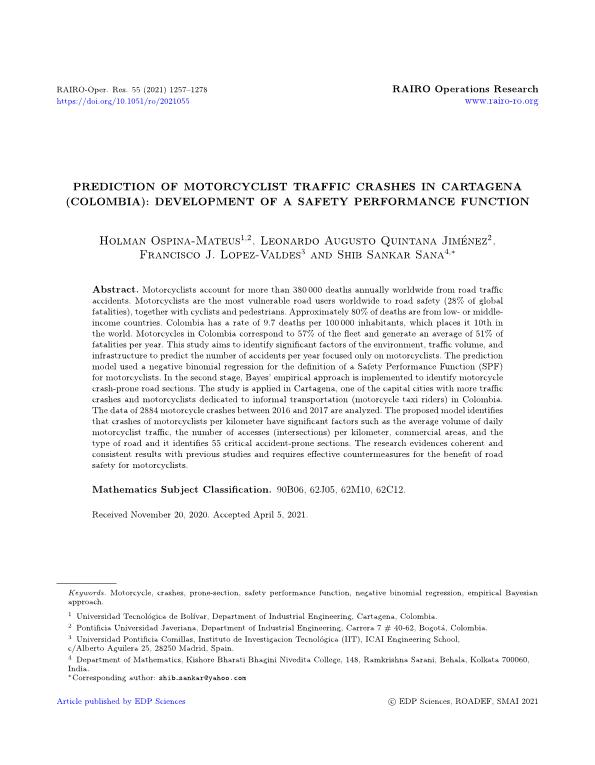Abstract
Motorcyclists account for more than 380 000 deaths annually worldwide from road tra c accidents. Motorcyclists are the most vulnerable road users worldwide to road safety (28% of global fatalities), together with cyclists and pedestrians. Approximately 80% of deaths are from low- or middle- income countries. Colombia has a rate of 9.7 deaths per 100 000 inhabitants, which places it 10th in the world. Motorcycles in Colombia correspond to 57% of the eet and generate an average of 51% of
fatalities per year. This study aims to identify signi cant factors of the environment, tra c volume, and
infrastructure to predict the number of accidents per year focused only on motorcyclists. The prediction
model used a negative binomial regression for the de nition of a Safety Performance Function (SPF)
for motorcyclists. In the second stage, Bayes' empirical approach is implemented to identify motorcycle
crash-prone road sections. The study is applied in Cartagena, one of the capital cities with more tra c
crashes and motorcyclists dedicated to informal transportation (motorcycle taxi riders) in Colombia.
The data of 2884 motorcycle crashes between 2016 and 2017 are analyzed. The proposed model identi es
that crashes of motorcyclists per kilometer have signi cant factors such as the average volume of daily
motorcyclist tra c, the number of accesses (intersections) per kilometer, commercial areas, and the
type of road and it identi es 55 critical accident-prone sections. The research evidences coherent and
consistent results with previous studies and requires e ective countermeasures for the bene t of road
safety for motorcyclists.














